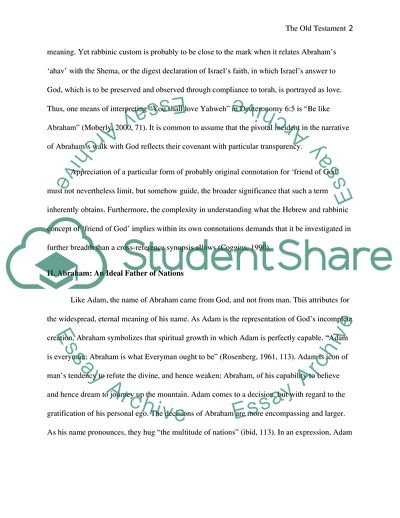Cite this document
(The Depiction of the Life of Abraham in the Old Testament Essay - 1, n.d.)
The Depiction of the Life of Abraham in the Old Testament Essay - 1. https://studentshare.org/religion-and-theology/1719939-a-person-learned-about-from-the-old-testament-who-identified-with-the-most
The Depiction of the Life of Abraham in the Old Testament Essay - 1. https://studentshare.org/religion-and-theology/1719939-a-person-learned-about-from-the-old-testament-who-identified-with-the-most
(The Depiction of the Life of Abraham in the Old Testament Essay - 1)
The Depiction of the Life of Abraham in the Old Testament Essay - 1. https://studentshare.org/religion-and-theology/1719939-a-person-learned-about-from-the-old-testament-who-identified-with-the-most.
The Depiction of the Life of Abraham in the Old Testament Essay - 1. https://studentshare.org/religion-and-theology/1719939-a-person-learned-about-from-the-old-testament-who-identified-with-the-most.
“The Depiction of the Life of Abraham in the Old Testament Essay - 1”. https://studentshare.org/religion-and-theology/1719939-a-person-learned-about-from-the-old-testament-who-identified-with-the-most.


